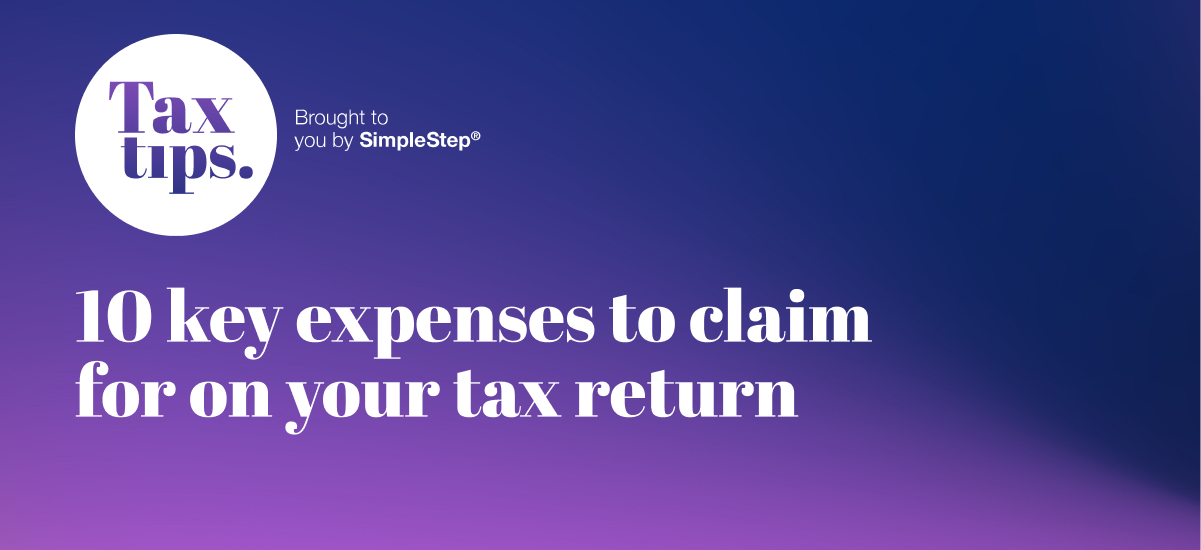TaxCalc Blog
News and events from TaxCalc
10 key expenses to claim for on your tax return

Filing a Self Assessment tax return as a self-employed individual can be a challenging process, but it’s an opportunity to reduce your tax liability by claiming allowable expenses. Unfortunately, many self-employed people miss out on deductions they’re entitled to by overlooking key expenses.
Home office expenses
If you work from home, whether part-time or full-time, you can claim a portion of your home expenses as a business deduction. This includes costs like mortgage interest or rent, utilities (electricity, heating, water), and internet services.
How to claim:
You can either use the simplified flat rate method offered by HMRC or calculate the exact proportion of your household costs that relate to your business use.
Don’t overlook:
Even if you only use part of a room as your office space, you can still claim a portion of the costs.
Travel and mileage
Travel expenses are another key area where deductions can be made. If you use your vehicle for business purposes, you can claim an appropriate proportion of fuel, insurance, repairs, parking, and even vehicle depreciation.
How to claim:
You can either claim actual vehicle costs or use HMRC’s simplified mileage rates, which are currently 45p per mile for the first 10,000 miles and 25p per mile thereafter.
Don’t overlook:
Public transport costs and travel-related expenses like tolls and accommodation (if you need to stay overnight for business) are also deductible.
Professional and legal fees
Any fees you pay for professional services directly related to your business are deductible. This includes accounting, bookkeeping, legal advice, and costs associated with preparing your tax return.
How to claim:
Keep all invoices and receipts from your accountant, lawyer, or other professional service providers.
Don’t overlook:
Membership fees for professional bodies or trade associations that are relevant to your business can also be claimed.
Office supplies and equipment
The cost of office supplies and equipment necessary for your business is fully deductible. This includes items like stationery, printer ink, software, and even larger equipment like computers and desks.
How to claim:
Smaller items can be claimed as allowable expenses, while larger equipment might be claimed as capital allowances, which allow you to deduct a portion of the cost each year.
Don’t overlook:
Subscriptions to software and cloud-based services that you use for your business can also be claimed.
Advertising and marketing costs
Expenses related to promoting your business are deductible. This includes costs for website hosting, online advertising, business cards, flyers, and any other marketing activities.
How to claim:
Keep detailed records of all advertising and marketing expenses, including invoices and receipts.
Don’t overlook:
Social media advertising costs, such as Facebook or Google Ads, and even the cost of attending networking events can be claimed.
Insurance
Any insurance policies that are directly related to your business are allowable expenses. This could include public liability insurance, professional indemnity insurance, and even vehicle insurance if the vehicle is used for business purposes.
How to claim:
Ensure that the insurance policies are in the name of your business or are specifically related to business activities.
Don’t overlook:
Home insurance can also be partially claimed if you work from home and your policy covers your business equipment or space.
Training and development
If you pay for training or courses that improve your skills directly related to your business, these costs are deductible. This includes workshops, seminars, and online courses.
How to claim:
Make sure the training is directly related to your current business activities and not for starting a new career or business.
Don’t overlook:
Books, manuals, and other educational materials directly related to your business can also be included.
Bad debts
If you’ve invoiced a customer and haven’t been paid, and it’s clear that you won’t be paid, you can claim this as a bad debt. This can reduce your taxable income for the year.
How to claim:
Keep records of the unpaid invoices and any efforts you made to recover the debt.
Don’t overlook:
Only debts that are truly irrecoverable can be claimed, so make sure you’ve taken reasonable steps to collect the payment.
Subscriptions and memberships
Subscriptions to trade journals, professional publications, and online tools that are directly related to your business can be claimed as expenses.
How to claim:
Ensure the subscriptions are necessary and relevant to your business activities.
Don’t overlook:
Memberships to relevant trade associations or professional bodies can also be deducted.
Bank charges and interest
If you have a business bank account, you can claim bank charges, overdraft fees, and credit card interest that are related to your business.
How to claim:
Keep your business and personal finances separate to make it easier to identify and claim these expenses.
Don’t overlook:
If you’ve taken out a business loan, the interest on the loan can also be claimed as a business expense.
Conclusion
As a self-employed individual, it’s crucial to claim all the allowable expenses you’re entitled to, as this can significantly reduce your tax bill. By keeping detailed records and not overlooking key expenses, like home office costs, travel, professional fees, and training, you can ensure you’re not paying more tax than necessary. If you’re ever in doubt about what you can claim, consider consulting a tax adviser or accountant to help you navigate the complexities of Self Assessment.
Maximising your expense claims is not just about saving money – it’s about making sure your business operates as efficiently and profitably as possible.
When it comes to tax, trust TaxCalc every time.
For a simpler way to file your tax, download TaxCalc’s award-winning tax return software today!
Learn more
What If? Planner
Plan for scenarios, adjusting your levels of income and see the effects of decisions being made now on next year's tax bill.
Learn more

VAT Filer for Business
If you’re ready and required to file VAT returns, TaxCalc’s VAT Filer for Business is a simple, quick and affordable solution.
Learn more



